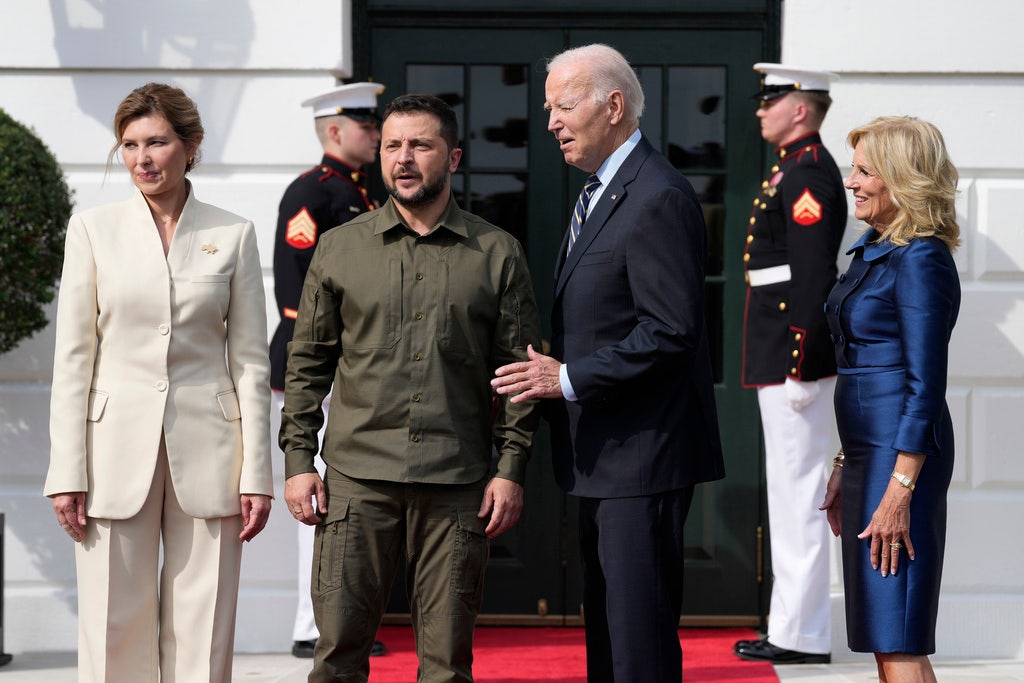As pressure mounts on NATO allies to allow Ukraine to use supplied weapons for attacks on military targets in Russia, the U.S. has remained a key holdout in authorizing such actions. Lithuanian Foreign Minister Gabrielius Landsbergis expressed frustration that Ukraine has not been allowed to strike back against Russian targets, especially in light of the atrocities seen in Ukraine. The Biden administration has previously restricted Ukraine to using U.S.-provided weapons only on targets within Ukrainian territory, but there is now serious consideration of allowing Ukraine to target military sites in Russia. Renewed attacks from fortified positions across the border have created a challenging situation for Ukrainian officials, prompting NATO allies such as Germany, France, and Sweden to push for more liberal use of weapons by Ukraine against Russian targets.
President Biden has maintained his position that Ukraine should not use NATO-supplied weapons to strike at Russian military targets across the border due to concerns about further escalation. However, Rep. Michael McCaul criticized this policy, likening it to tying Ukraine’s hands behind their backs in the conflict with Russia. The focus on the city of Kharkiv has raised fears among Ukrainian officials that Russia may attempt to take the city, potentially establishing another foothold in the country. Russian President Vladimir Putin has blamed Ukraine for the situation on the Kharkiv front, citing attacks on Russian villages as justification for retaliation.
French President Emmanuel Macron and German Chancellor Olaf Scholz agreed to remove constraints on Ukraine’s use of NATO weapons on Russian military targets across the border. While Macron emphasized Ukraine’s right to defend itself within the framework of international law, Scholz stressed that the approval would be limited to military targets. Despite these calls for change, the National Security Council reiterated that there is no change to the U.S. policy, which does not encourage or enable the use of U.S.-supplied weapons to strike inside Russia. Ukrainian President Volodymyr Zelenskyy has urged NATO allies to put pressure on both Russia and partners to allow Ukraine the opportunity to defend itself.
NATO Secretary General Jens Stoltenberg also joined the chorus of calls for the U.S. to ease restrictions on Ukraine’s use of weapons, emphasizing the importance of allowing Ukraine to defend itself. While President Biden’s concern about Putin’s potential reaction to Ukraine strikes is valid, strategic military intelligence analyst Rebekah Koffler noted that the current approach is “risk-averse” and leaves the U.S. vulnerable as Russia acts with greater impunity. Koffler warned that authorizing Ukraine’s strikes on Russia could lead to retaliation against the U.S., including cyberattacks on critical infrastructure. The White House did not respond to requests for comment on the matter.
In the face of escalating tensions and renewed attacks from Russia, pressure is mounting on the U.S. to reconsider its restrictions on Ukraine’s use of weapons against Russian military targets. The evolving tactical situation and calls from NATO allies highlight the urgent need for a shift in policy to allow Ukraine to defend itself effectively. President Biden’s cautious approach, aimed at avoiding conflict escalation and protecting U.S. interests, must be balanced with the need to support Ukraine in its struggle against Russian aggression. As the situation continues to unfold, the decision on whether to authorize Ukraine’s strikes on Russian targets remains a critical and complex issue for the U.S. and its allies.


